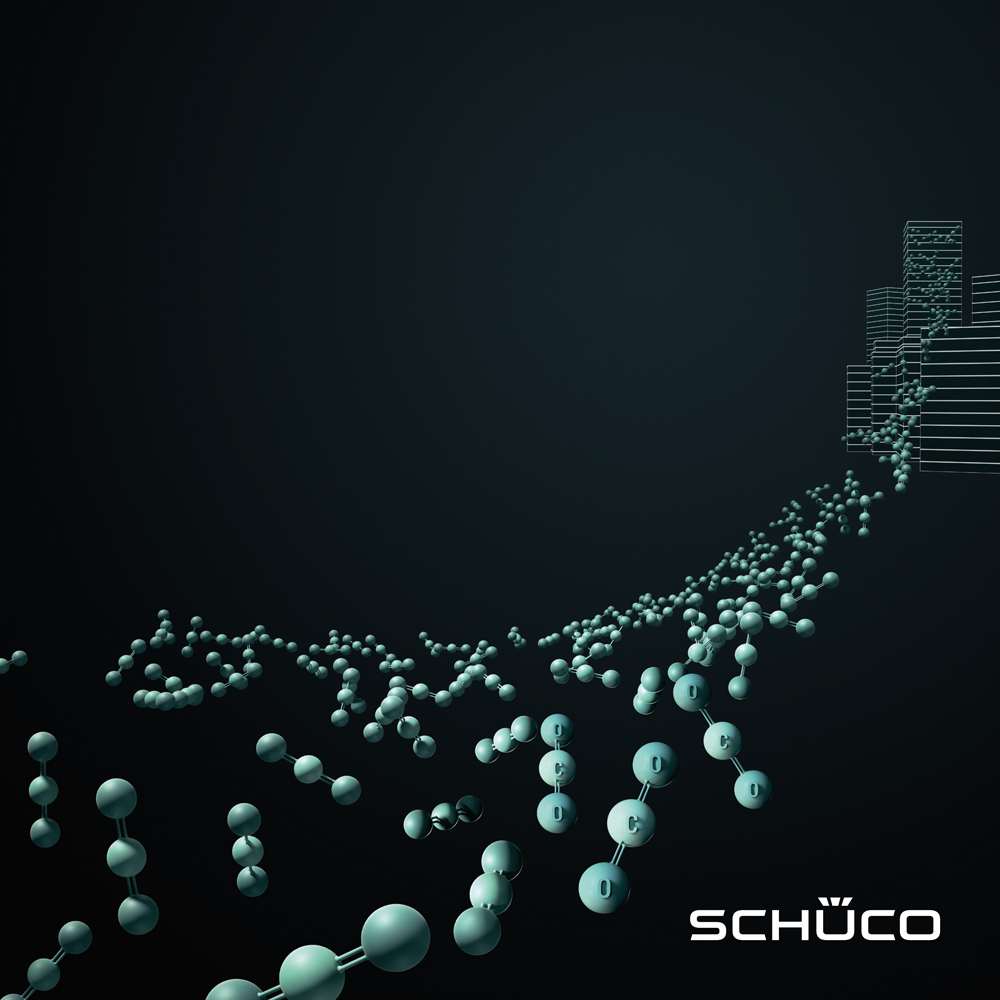Entrepreneurship culture of Innovation
It could be a completely normal office newbuild with a large glass façade, an airy entrance area and generous terraces. A building from which, in a prosperous city like Munich, bankers in dark suits exit with their wheeled suitcases and jump into waiting taxis. But instead of bankers, a man wearing a beekeeping hat and veil stands in front of the entrance with three wooden beehives. And instead of a taxi, a knee-high vehicle trundles slowly over the dry ground in the open space next door. A young man drives the vehicle using a remote control.
These people are far removed from anything to do with banking. Instead, they are working on creating better living conditions for the city of the future. The Munich Urban Colab is a place where start-ups work on the urban challenges of tomorrow together with the state capital o Munich, established companies and scientists. Start-ups like Angsa Robotics, whose driverless robots are designed to pick up discarded cigarette butts and metal bottle caps and are currently practising this. Other start-ups are working on software for sustainable building and intelligent batteries for e-mobility. Their common goal is to create smart, enterprising innovations for the city of the future. Since its opening in June 2021, this 11,000 m2 building in the creative district near the main train station has been used by around 300 people, who have worked here together on their ideas and the realisation of those ideas. The 35 million euro project was financed by the state capital of Munich in cooperation with UnternehmerTUM GmbH, the start-up hub founded by entrepreneur Susanne Klatten at the Technical University of Munich.
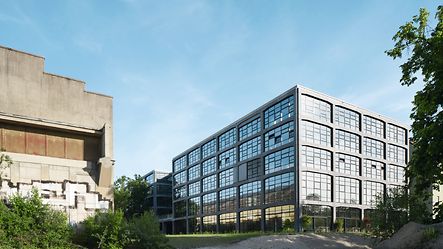
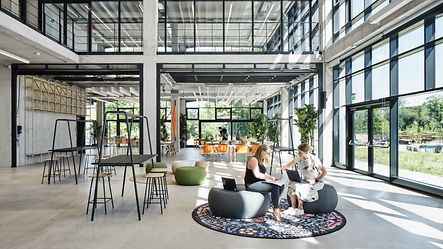
Mark Stabel from UnternehmerTUM supervised the Munich Urban Colab right from the start and he knows the building and its people better than anyone. When he talks about the building and its residents in the cafeteria, he always has one eye on what’s happening on the ground floor. He is delighted with the building designed by steidle architekten: »The architects understood exactly what we wanted: communication, visibility, encounters.« Walking through the building it becomes clear what Stabel means – it provides the perfect setting to engage in dialogue about the city of the future and about problems that no one can solve on their own. Where other co working spaces offer multiple isolated, efficient office hubs, the Munich Urban Colab provides almost lavishly large meeting areas and open spaces. Sofa corners and groups of chairs in the airy, open stairwells invite you to communicate. There are also tables and benches in the buildingheight conservatories. Established companies like Wacker Chemie, SAP, Infineon and Hörmann have offices in the start-up hub. They want to make contacts in the world of start-ups and try out new ideas, for instance, with BEFIVE, an initiative by UnternehmerTUM for the digitalisation of the construction industry.
The transparency of the building also aims to entice people in from outside. The ground floor with its café and the first floor are open to the public. Openness is also a key principle in the offices. People can sit, stand or walk around with their coffees, laptops or mobile devices. Many people say the building attracts young entrepreneurs from all over Europe. The architecture of the building is crying out to them to work together. The day before, artists from studios in the creative district came to see the building. They can also take advantage of the large MakerSpace workshop with its high-tech machinery. The startups here are building all manner of prototypes – from wooden boxes to satellites. As a place for conferences and talks, the Colab is more popular than anyone thought it would be, explains Sabine Hansky who, as Programme Director, is responsible for the orientation of the content. In May, for example, Architecture Matters was held here, which is a conference about the future of architecture and cities.
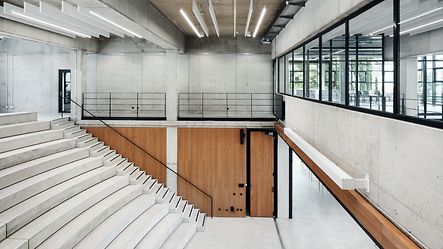
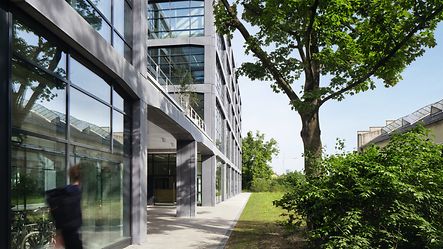
The former army barracks, on which the Colab is situated, is one of the few places in Munich that rejects the usual co-existence of money-making and consumption. In the old, graffiti-sprayed halls next to the Munich Urban Colab, sculptors can make noise and dust. Children bike and skate along tracks that have not been used for a long time, while their parents sit on brightly coloured chairs in the café with edible greenery growing in wooden boxes next to them. A small slice of anarchy at the heart of the city. For Clemens Baumgärtner, Head of the City of Munich’s Department of Labour and Economic Development, it’s about »carefully further developing how things are used in order to inject fresh impetus into the existing city«. Fresh impetus, that the city also hopes will come from the Munich Urban Colab. On the one hand, the state capital needs to catch up with Berlin in terms of start-up culture. On the other, Munich wants to become a leader in smart city solutions. Mobility, living environments, workplaces and energy supply are just a few issues to which creative responses are to be generated here.
For a direct line to the start-up scene, several departments from administration, public utility companies and also the Munich Transport Authority have moved into desks at the startup centre. Employees from the city bring their challenges here as tasks for the young entrepreneurs to solve or provide them with real life test environments. The autonomous rubbish collectors from Angsa Robotics will also soon depart the meadow outside the Colab to enter the real world. The aim is for the mobile waste disposal units to be used in autumn after Oktoberfest to clean up Theresienwiese. (Schüco Produkte/products: FWS 50.SI, SCHÜCO AWS 75BS.HI, SCHÜCO AWS 75.SI, ADS 75HD. HI RC2, S 70.HI RC2)

- Work material (e.g. tender specifications, BIM objects, CAD data, catalogues)
- Note content
- Direct contact to Schüco
